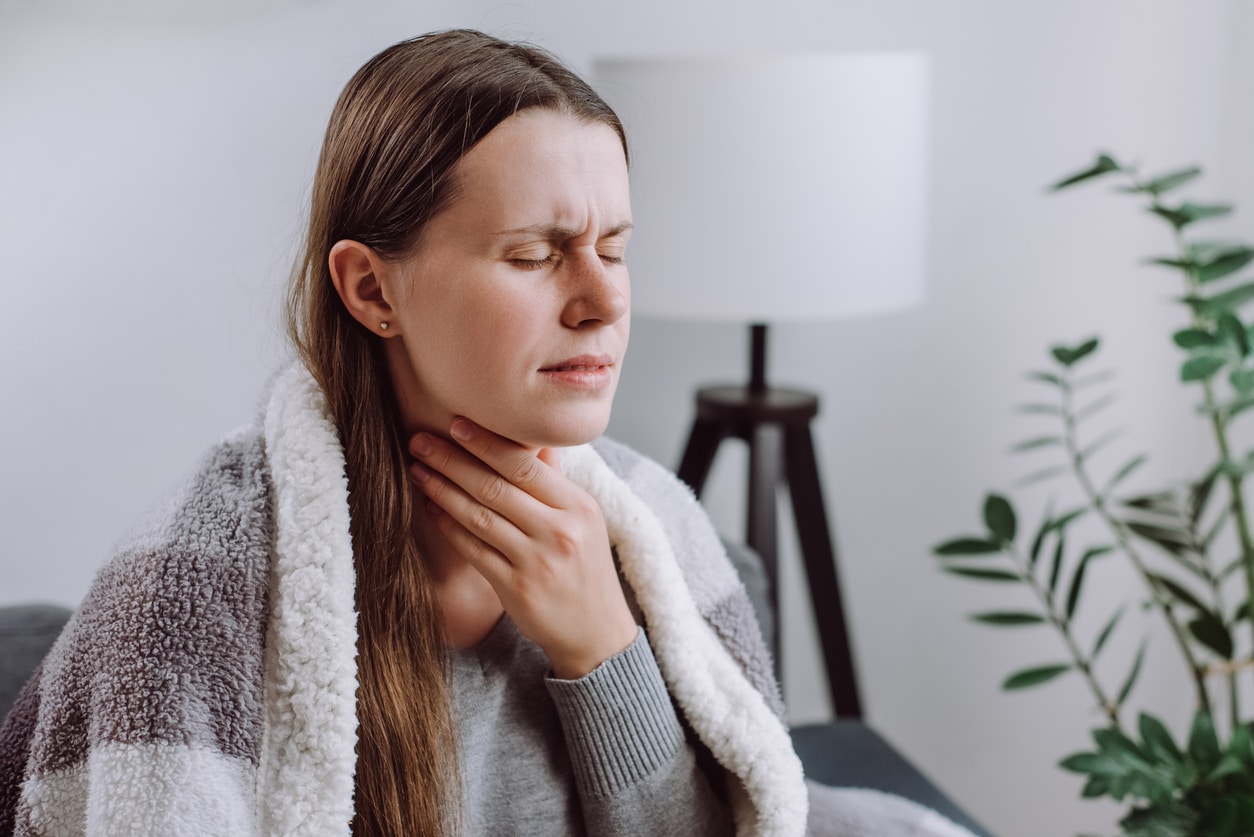Acid reflux is the phenomenon of stomach acid rising into your esophagus, the tube responsible for moving food and liquid from the mouth to the stomach. When the acid rises, you may feel heartburn, indigestion, stomach pain, acidic backwash, nausea and a sore throat.
How Common Is Acid Reflux?

Many people will experience acid reflux from time to time, often following a large or acidic meal. When acid reflux is more severe and long-lasting, it is called gastroesophageal reflux disease (GERD). Although GERD can occasionally reach the throat, its symptoms tend to arise from the lower esophagus.
When stomach acid repeatedly rises into the throat and vocal cords, it is called laryngopharyngeal reflux (LPR). Although LPR is a lesser-known form of acid reflux, more than half of people who experience chronic hoarseness are estimated to have LPR.
How Does LPR Affect The Throat?
The frequent presence of acid in the throat from LPR can lead to a range of throat symptoms, including:
- Hoarseness. Hoarseness occurs when vocal cords become irritated or inflamed, leading to changes in the voice.
- Frequent throat clearing. Irritation caused by acid or mucus in the throat can lead to chronic throat clearing, further aggravating the throat and vocal cords.
- Chronic cough. Chronic coughing from LPR inflammation or mucus in the throat can irritate the throat and vocal cords.
- Difficulty swallowing. Swelling and irritation from LPR can cause painful or difficult swallowing.
Over time, untreated LPR can lead to worsening symptoms and permanent damage to the throat.
How Can You Protect Your Throat Health?
A sore throat or chronic coughing can make it difficult to talk, ruin your favorite Terra Luna meal and interrupt your sleep. The best way to protect your throat health is to manage the LPR causing your symptoms. LPR treatment approaches fall into two categories: lifestyle and medical. Many mild LPR cases can be managed with a few lifestyle adjustments, including but not limited to:
- Eating four to six small meals throughout the day instead of three
- Eat dinner at least three hours before going to be
- Avoid spicy or acidic foods
- Avoid carbonated beverages if you find they’re causing excessive burping
- Quit smoking and reduce alcohol intake
- Sleep on your left side
- Wear loose-fitting clothes around your waistline, especially when going to bed
Medical treatments may include prescription medications to neutralize or block stomach acid or surgery to tighten the lower esophageal sphincter and prevent reflux. Surgery is usually only necessary in severe cases.
For more information on managing your acid reflux, contact Albany ENT & Allergy Services today to make an appointment with one of our specialists.